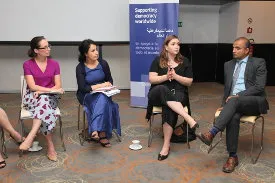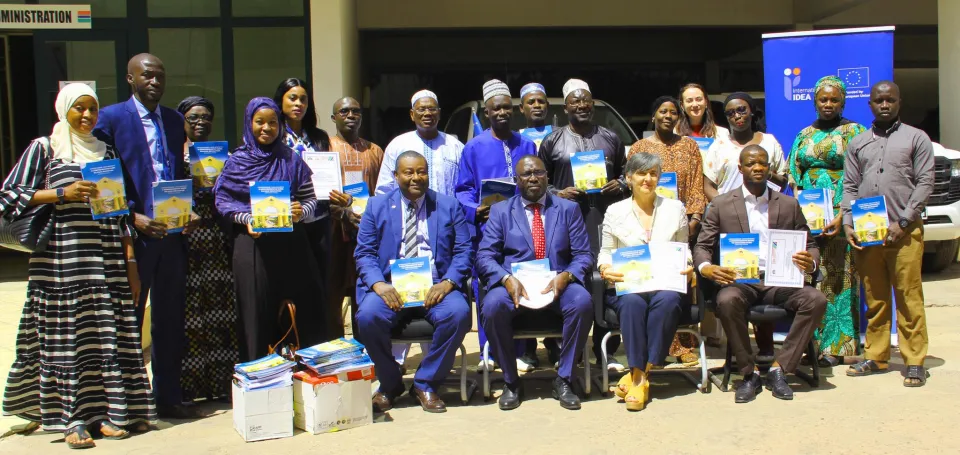Women and Youth Commissions in Tunisian Political Parties: Learning from Canada

What are women and youth commissions? What purpose do they serve? How are they formed? Do they further marginalize women and youth or bring them into the folds of decision-making? International IDEA hosted Anna Gainey, President of the Liberal Party of Canada, and Carlene Variyan, President of the National Liberal Women Commission, to discuss these questions and more with Tunisian Members of Parliament, ministers and various political party members over Ramadan Iftar celebrations on 16 and 17 June 2016.
While Canada is a relatively new country, the Liberal Party of Canada was founded 155 years ago, which falls in stark opposition to Tunisia, which has a long and rich history, but very new political parties. Despite these differences, the Canadian experience was brought to Tunisia to show some of the experiences and challenges the Liberal Party has faced over the course of its history. Particular attention was placed on their achievements, particularly in relation to women and youth participation in the 2015 Canadian elections, including as volunteers, members, donors, candidates and now as members of the Parliament and as Ministers.
Harsha Sirur, Charge d’Affaires of the Canadian Embassy to Tunisia, who welcomed the guests to the iftar, noted that the question of how to better mobilize the active political participation and membership of women and youth is being actively and currently discussed by all of Canada’s political parties. In Tunisia, the discussion is also highly topical, due largely to the anticipated 2017 municipal elections in the country. While Tunisia’s Parliament boasts a commendable 30% of women, he further highlighted that women and youth still strive to have their voices heard in decision-making positions in the country.
Tunisian counterparts were introduced to the workings of the Liberal Party of Canada and the formation and benefits of the youth and women commissions within the party. Some benefits of the youth commission, the Young Liberals of Canada, include the ability for the political party to engage with young people and to hear their needs and demands through a structured mechanism. In addition, many from the youth commission have gone on to hold high-level positions within the party and parliament. The Young Liberals have been fundamental and successful in pushing for policy changes within the party and on the national agenda. While some Tunisian political parties have youth wings or commissions within them, it was largely felt that the voice of young people interested in politics in the country remains unheard. Having structured commissions that can bring young people together to present and debate ideas can be an influential factor in the strategy and policy decisions of national and regional parties.
Debates around the formation of women’s commissions reflected concerns that such commissions could further alienate women from decision-making positions, indicating the rational for why some Tunisian political parties decided not to create such commissions. While this could indeed be a possibility, the members of the Liberal Party of Canada emphasized that, on the contrary, such commissions could and should be seen as a platform for women to come together to identify and overcome barriers to their common obstacles and to promote women’s issues within the party at large. Some examples were evidenced by the party’s support to women candidates through the Judy LaMarsh Fund that allows donors to earmark donations for women candidates. Other examples include subsidies to women candidates for childcare during the party nomination, and an additional sum for travel costs in geographically large electoral districts. Such examples show how parties can work to level the playing field, particularly as campaign financing is often at the root of women’s inability to gain equal representation in national legislatures.
Overall, the in-depth iftar debates and meetings with various Tunisian ministers brought many considerations to the forefront, with the female and male participants from International IDEA’s nine partner political parties leaving with inspiration for ways to better include women and youth within the ranks of their parties. Discussions on such important topics will continue throughout the duration of the International IDEA and Netherlands Institute for Multiparty Democracy four-year project, ‘Respect for Women’s Political Rights’ currently being implemented in Tunisia.



